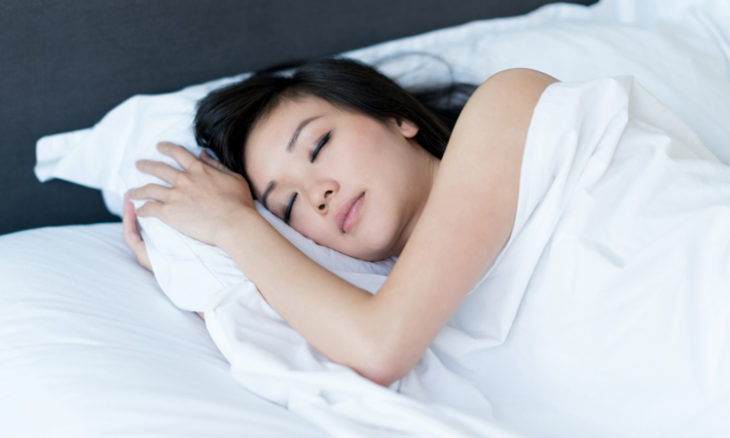With today’s busy schedules, many people sleep fewer hours or end up not sleeping at all. Sleep has numerous health gains, and its lack can affect your health in myriad ways. If left untreated, sleeplessness can cause serious health hazards such as heart disease and impaired mental functioning. Sadly, sleeplessness goes unnoticed in most cases, and many people do not seek treatment for the condition.
Contents
What are the common causes of sleeplessness?
Lack of sleep can be either voluntary or involuntary. Some people fail to get to bed when they feel sleepy. While for others, their sleep is interrupted by distractions while asleep, medications of certain illnesses. The main causes of sleeplessness are;

Source: Neuropathic Therapy Center – Loma Linda University Health
-
Medication
Some medications can interfere with your rest at night, causing bouts of interrupted sleep. For instance, taking insomnia medications can worsen your situation, making you likely to stay up the entire night. Sleeping pills can also interfere with your normal body functions and sleep patterns, resulting in sleep deprivation.
-
Lifestyle
How you spend your day determines how well you sleep at night. The activities you engage in play a significant role in your sleep patterns. For example, taking coffee or alcohol late in the night can result in a lack of sleep.
Other factors like sleeping position, smoking, and obesity can also cause snoring, resulting in sleeplessness for both you and your partner. Chronic snorers are likely to suffer from daytime sleepiness, headache, and anxiety, which can further trigger sleeplessness. There are some anti-snoring devices like SnoreRX that you can use to improve snoring. To learn more about it, click here for an in-depth review of the mouthpiece and how it works.

Source: Daily Mail
-
Ailments
If you suffer from a health condition that causes a lot of body pain, you’re likely to suffer from sleeplessness. Some of the conditions that can disrupt your sleep are;
- Diabetes
- Neurological disorders
- Depression
- Arthritis
- Post-traumatic sleep disorder.
- Bladder conditions
How can you best deal with sleeplessness?
Almost everyone suffers from sleeplessness at some point in life. Lack of sleep causes numerous health issueas. And it’s best to deal with the issue promptly. Fortunately, there are various ways to deal with lack of sleep and have a more peaceful night sleep. Here’s how.
1. Have a sleep routine

Source: rewireme
A sleep routine helps calm you down and transitions your body from wakefulness to slumber. With a regular sleep schedule, you’re likely to feel asleep at a certain time and improve your chances of resting peacefully throughout the night.
Although you may be tempted to say up for more hours in some cases, this will alter your sleep pattern and make it harder to have an uninterrupted sleep. Set a sleep schedule and stick to that. Take your dinner hours before bedtime each day, sleep early, and be consistent. With time, your body will get used to the cycle, and you’ll be amazed by how easier it will become to fall asleep.
2. Wind down with calming activities

Source: The Sleep Doctor
Try as much as possible to relax before going to bed. There are various activities that you can engage in to calm yourself. These are, for example, short walks, reading an interesting book, meditation, talking to a loved one, and more.
However, avoid distractions and anything else that can upset you. Turn off your mobile phone and switch off the TV. Moreover, switch off the lights and limit the light in your bedroom. If you carry some work home, avoid attending to the tasks from your bed. This way, your body will associate your bed with sleep, making it easier to fall asleep at night.
3. Take early& Short naps

Source: The Independent
A nap is an excellent way of dealing with mid-afternoon drowsiness. But, it can affect your sleep at night. If you take prolonged naps for more than 30-45 minutes or close to your sleep time, it can affect how well you fall asleep at night. Naps also compromise your ability to stay asleep, which can result in insomnia.
Limit day naps, and if you must take one, make it short, mostly 30 minutes or less. If you make it longer, you may not require more sleep hours at night. And this results in fragmented sleep with more periods of awakenings in the night.
4. Stay active-Exercise more!

Source: Stride Strong Physical Therapy
Exercising lifts your mood, alleviates stress, tones your muscles, and boosts your cardiovascular function. It also stresses your body, making you sleep better at night to relieve the physical strain. When you exercise, you experience a rise in your body temperature, which drops after some time. The drop can also trigger sleep, making you likely to have uninterrupted rest at night.
What are the best sleep-friendly exercises?
Building muscles can help enhance your sleep quality. It can also help you to fall asleep faster and have minimal disruptions throughout the night. Exercises like bicep curls, squats, calf raises, shoulder presses, tricep dips, sit-ups, and push-ups work best. Yoga exercises also help alleviate stress and induce sleep naturally.
5. Reduce alcohol intake

Source: Medium
Alcohol is one of the main causes of most health problems. Alcohol can promote sleep onset thanks t its sedative qualities. However, this may not last long; you’ll likely experience disruptions, later on, leading to sleeplessness. Limit or avoid alcohol and tobacco consumption.
6. Herbal cures

Source: Headlines of Today
Herbal remedies like chamomile tea are also used for the treatment of sleeplessness. You can purchase chamomile in your local market in the form of oils, extracts, and capsules. Use chamomile oil to massage your body before taking a bath. Chamomile tea will also calm your nerves and encourage sleep.
Hops tea also works. Hops tea powder tranquilizes your mind enabling you to sleep better at night. For best results, take the right dosage daily. Another renowned herbal cure is the Aaram capsule. It’s laden with different ingredients that slacken your body and mind. It improves your blood circulation, relieves stress, and supports better sleep.
The bottom line
There are various ways to deal with sleeplessness. If you have been having interrupted sleep, avoid pursuits that can trigger a lack of sleep, and develop habits to encourage more restful sleep. Also, acquire quality beddings and talk to your doctor about any symptoms that you may be exhibiting.
